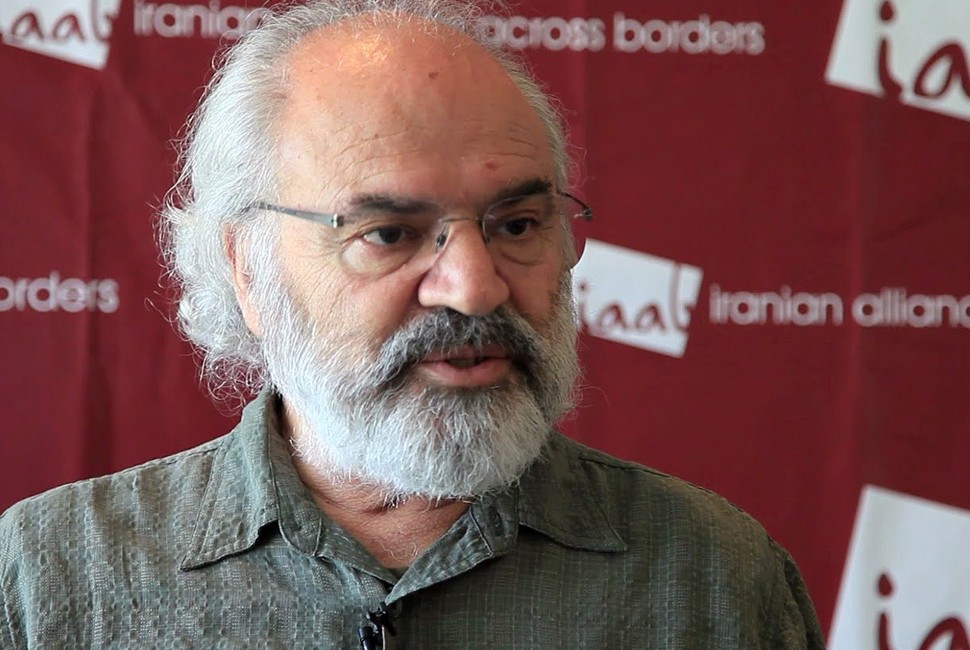Scholars from Northwestern University and beyond will gather June 2 and 3 to celebrate the contributions of professor emeritus Hamid Naficy, a global authority on Iranian cinema and diaspora studies.
Naficy is a pioneering scholar in the cultural studies of diaspora and exile, postcolonial cinemas and media, and Iranian and Middle Eastern cinemas and media. His many books include “The Making of Exile Cultures: Iranian Television in Los Angeles” (1993), “Home, Exile, Homeland: Film, Media, and the Politics of Place” (1999), “An Accented Cinema: Exilic and Diasporic Filmmaking” (2001), and the four-volume “A Social History of Iranian Cinema” (2011-12).
Opening night will take place at the Block Museum of Art and will feature a screening of “Mouth Harp in Minor Key: Hamid Naficy In/On Exile,” a documentary on Naficy’s life directed by Maryam Sepehri, and a keynote address by Michael M. J. Fischer, a professor at the Massachusetts Institute of Technology (MIT), titled “Unaccented Hamid Naficy: Cartoonist, Ethnographer, Social Historian of Film, Friend.”
“Hamid’s work has broad implications for, and applications in, cinema and media studies far outside of Iran,” said Rebecca Johnson, director of the Middle East and North African Studies Program at Northwestern. “Scholars thinking through the relationship between artists, their homelands and their diasporic communities — wherever that homeland may be — have always turned to Hamid’s work.”
“Naficy’s scholarship prefigured what is now called global Iranian studies and global Middle East studies,” said Danny Postel, assistant director of the Center for International and Area Studies at Northwestern, and one of the organizers. Postel, himself an author on Iranian affairs, added that Naficy’s work in many ways prepared the intellectual ground for these fields, which have taken off in recent years.
Two of the conference speakers, Simran Bhalla and Maziyar Faridi, completed their Ph.D.s at Northwestern and recall Naficy’s influence with much admiration.
“Hamid has made inestimable contributions to film and media scholarship, and beyond that, to film production and exhibition as well,” said Bhalla, who is now a visiting assistant professor at Tulane University. “His rigorous interdisciplinary method of social history is a model for scholars of Global South, transnational and diasporic cinemas.”
Faridi said his experience at Northwestern while a doctoral candidate was richer for being able to study with Naficy. “In addition to his scholarship on transnational film studies, Naficy’s unique intellectual curiosity and playful creativity continue to inspire my research and teaching,” said Faridi, who is now an assistant professor at Clemson University.
The celebration is co-presented by the Middle East and North African Studies Program, the Department of Radio/Television/Film, the Block Museum of Art and the Center for Global Culture and Communication.


